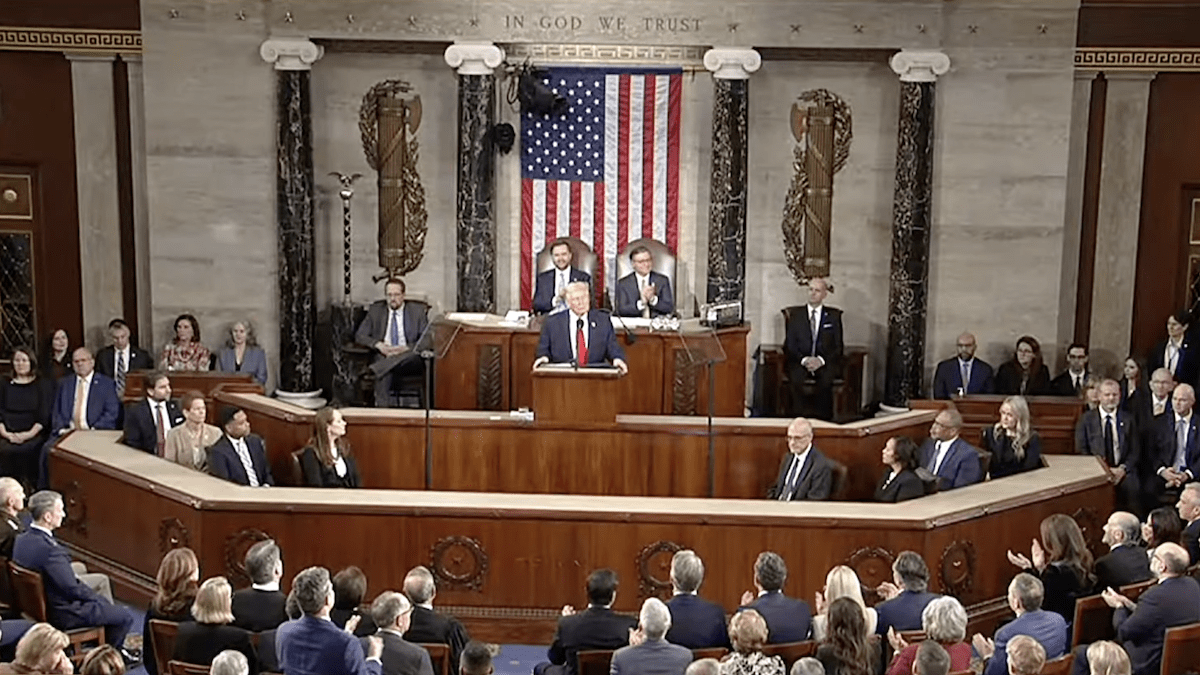In fiery SOTU, Biden proclaims “We finally beat big pharma”

Just days after the US presidential race officially narrowed to a contest between President Joe Biden and former president Donald Trump, it’s no surprise that Biden’s State of the Union speech seemed primarily concerned with scoring political and electoral points.
For the pharma industry, it should be equally unsurprising that a few of those points were scored at the industry’s expense. Even so, the President bragging, “We finally beat big pharma,” as he did relatively early on in last night’s speech, certainly left no doubt about how he views his relationship with drugmakers.
In a speech that ran more than an hour, President Biden’s brief but fiery remarks about pharma came in at the 21-minute mark.
“Americans pay more for prescription drugs than anywhere else in the world. It’s wrong and I’m ending it,” Biden said. “With a law I proposed and signed – and not one of you Republican buddies voted for – we finally beat big pharma.”
The President described the $35-per-month insulin price cap and $2,000-per-month prescription drug cost cap that the IRA secured for seniors on Medicare and called to extend both to all Americans, including those with private insurance.
“This year, Medicare is negotiating lower prices for some of the costliest drugs on the market that treat everything from heart disease to arthritis,” he said. “Now, it’s time to go further and give Medicare the power to negotiate lower prices for 500 drugs over the next decade. They’re making a lot of money, guys. And they’ll still be extremely profitable.”
He emphasised the effect of the negotiations on not only individual Americans, but on the federal deficit.
“That’s not just saving seniors money, it’s saving taxpayers money,” he said of the Medicare negotiations. “We cut the federal deficit by $160 billion because Medicare will no longer have to pay those exorbitant prices to Big Pharma.”
Interestingly, Biden reiterated twice that pharma would “still be extremely profitable”, but neither comment appeared in the prepared version of his speech, suggesting that perhaps Biden felt the need to soften his attack on the industry in the moment. Throughout the night, the President ad-libbed extensively.
A familiar talking point
The discussion of prescription drug prices wasn’t unexpected tonight. Biden came out strong on the issue in last year’s speech and at that point he wasn’t about to enter a general election. The White House also released a fact sheet yesterday highlighting the administration’s record and even proposing some further reforms.
In it, the administration proposed increasing the number of Medicare drugs up for negotiation, calling on Congress to expand the $2,000 out of pocket prescription drug cap to include private insurance, and working with manufacturers to expand access to cell and gene therapies. It also mentions calls to Congress to limit Medicare cost-sharing to $2 for high-value generic drugs and to expand the rebates required by the IRA when pharma raises prices faster than inflation.
The Bidens also invited a patient affected by the IRA’s drug pricing policies to the State of the Union. According to advocacy group Patients for Affordable Drugs Now, Dr Jill Biden was joined in her box by Steven Hadfield, who takes Januvia, one of the first 10 drugs selected for Medicare negotiation under the IRA, for his diabetes.
“The Inflation Reduction Act has been a lifeline, reducing my insulin costs from $400 to $35 per month,” Hadfield said in a statement provided by P4ADNow. “Medicare’s ability to negotiate lower drug prices offers hope for millions of patients like me. Less expensive drugs would finally allow me to rest more often or hopefully help me transition from working full-time to working part-time. I am honoured to be a guest of First Lady Jill Biden during the State of the Union as President Biden advocates for lower drug prices. He understands that drugs don’t work if people can’t afford them.”
Pharma industry groups, meanwhile, have continued to maintain that the prescription drug price negotiations in the IRA are not negotiations at all, but price setting. PhRMA put out a statement responding to the President’s address.
“The IRA is stifling lifesaving research — like the very research needed to get the president’s Cancer Moonshot off the ground — and creating access barriers for patients,” the group wrote. “There is bipartisan support for fixing some of the flaws of the IRA, yet, the administration is rushing to make this bad law worse. Letting government bureaucrats arbitrarily set the price of medicines allows politics to dictate which cures are worth investing in and who should get access to them. It puts the government between patients and their doctors.”
A few nods to cancer research
Outside of the four and a half minutes spent on the IRA, the President made two other allusions to the pharma industry in a more complimentary light. Early on in the speech, he dropped a reference to the promise of mRNA technology beyond COVID.
“The pandemic no longer controls our lives,” Biden said. “The vaccines that saved us from COVID are now being used to beat cancer, turning setback into comeback. That’s what America does.”
And the President alluded briefly to his Cancer Moonshot towards the end of his speech as well, saying, “We can do big things like end cancer as we know it. And we will.”













